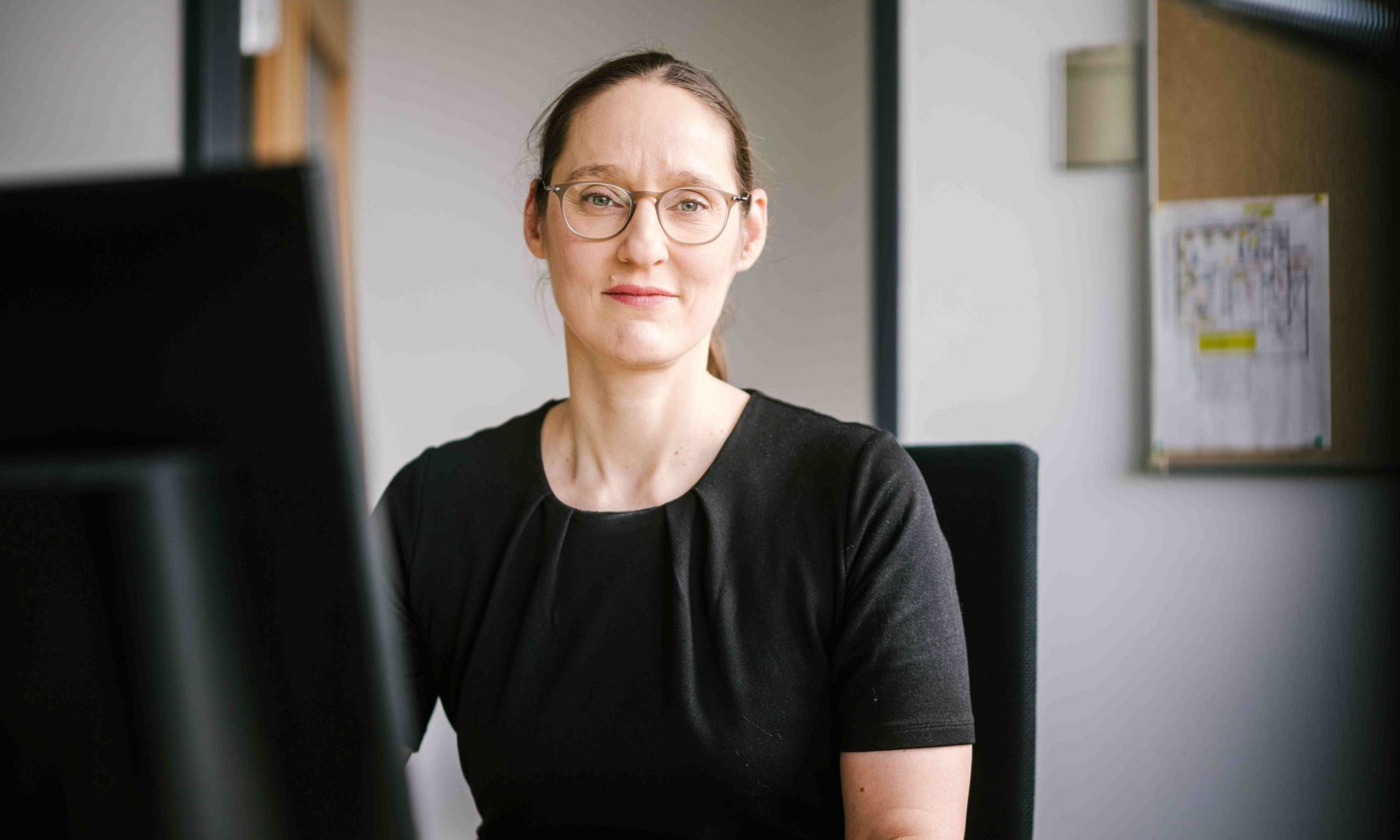__________
L. Fernsel, Y. Kalff, und K. Simbeck, „Audits for Trust: An Auditability Framework for AI-Based Learning Analytics Systems.”, In Proceedings of the 17th International Conference on Computer Supported Education (CSEDU 2025) – Volume 2, pages 51-62, ISBN: 978-989-758-746-7; ISSN: 2184-5026
November 2023
Projektmitarbeiterin Linda Fernsel hält einen Vortrag zu Ethischer KI beim KI-Forum der HTW Berlin.
September 2023
Projektmitarbeiterin Linda Fernsel hält einen Vortrag zum Moodle Plugin „Let’s audit Learning Analytics“ (LaLA) bei der Moodle MOOT Global Konferenz. Der Vortrag ist hier zu sehen.
Mai 2023
Rzepka, N., Fernsel, L., Müller, H., Simbeck, K., & Pinkwart, N., (2023) Unbias me! Mitigating Algorithmic Bias for Less-studied Demographic Groups in the Context of Language Learning Technology. Computer-Based Learning in Context, 6 (1), 1-23. DOI: 10.5281/zenodo.7996194
Dezember 2022
Rzepka, N., Simbeck, K. & Müller, H. (2022). Impact of the Covid-19 pandemic on students’ spelling ability. Research on Education and Media, 14(2) 57-63. https://doi.org/10.2478/rem-2022-0022
September 2022
Simbeck, K.
Künstliche Intelligenz und Fairness im Bildungskontext.
Verständig, D., Kast, C., Stricker, J. & Nürnberger A. (Hrsg): Algorithmen und Autonomie. Interdisziplinäre Perspektiven auf das Verhältnis von Selbstbestimmung und Datenpraktiken (S. 91-100).
Verlag Barbara Budrich, Leverkusen, 2022
Fernsel, L. & Simbeck, K.
Data Synthesis for Fairness Audits of Learning Analytics Algorithms.
25. Tagung des Arbeitskreis Wirtschaftsinformatik an Hochschulen für angewandte Wissenschaften (AKWI), 2022, http://dx.doi.org/10.30844/AKWI_2022_21
Rzepka, N., Simbeck, K., Müller, H.-G. & Pinkwart, N., (2022). Adaptive Learning as a Service – A concept to extend digital learning platforms?. In: Henning, P. A., Striewe, M.-0. 0. & Wölfel, M.-0. 0. (Hrsg.), 20. Fachtagung Bildungstechnologien (DELFI). Bonn: Gesellschaft für Informatik e.V.. (S. 237-238). DOI: 10.18420/delfi2022-049
Juni 2022
Simbeck, K.
FAccT-Check on AI regulation: Systematic Evaluation of AI Regulation on the Example of the Legislation on the Use of AI in the Public Sector in the German Federal State of Schleswig-Holstein
ACM FaCCT Conference, 2022, https://doi.org/10.1145/3531146.3533076
Mai 2022
Projektmitarbeiterin Nathalie Rzepka hat einen Vortrag zum Datenset „Orthografietrainer“ im Vicar-Research Seminar gehalten
April 2022
N. Rzepka, K. Simbeck, H.-G. Müller, and N. Pinkwart
Keep It Up: In-session Dropout Prediction to Support Blended Classroom Scenarios
Proceedings of the 14th International Conference on Computer Supported Education – Volume 2: CSEDU, SciTePress, 2022, ISBN 978-989-758-562-3
N. Rzepka, K. Simbeck, H.-G. Müller, and N. Pinkwart
Fairness of In-session Dropout Prediction
Proceedings of the 14th International Conference on Computer Supported Education – Volume 2: CSEDU, SciTePress, 2022, ISBN 978-989-758-562-3
N. Rzepka, K. Simbeck, H.-G. Müller, and N. Pinkwart
An Online Controlled Experiment Design to Support the Transformation of Digital Learning towards Adaptive Learning Platforms
Proceedings of the 14th International Conference on Computer Supported Education – Volume 2: CSEDU, SciTePress, 2022, ISBN 978-989-758-562-3
Januar 2022
Tagharobi, H. and Simbeck, K.: Introducing a Framework for Code based Fairness Audits of Learning Analytics Systems on the Example of Moodle Learning Analytics. In: Proceedings of the 14th International Conference on Computer Supported Education, S. 45-55, Virtual, 2022 https://doi.org/10.5220/0010998900003182
Simbeck, Katharina : Stellungnahme zum Entwurf eines Gesetzes zur Förderung der Digitalisierung und Bereitstellung von offenen Daten und zur Ermöglichung des Einsatzes von datengetrieben Informationstechnologien in der Verwaltung Gesetzentwurf der Landesregierung, Drucksache 19/3267, S. 1-11, Berlin/Kiel , 2021 http://www.landtag.ltsh.de/infothek/wahl19/umdrucke/06800/umdruck-19-06842.pdf
November 2021
Taghabori, Simbeck: Studying Algorithmic Fairness in Moodle Learning Analytics, ECEL21, 2021.
Erschienen in Proceedings of the 20th European Conference on E-Learning
academic-conferences.org (ECEL21)
https://www.academic-bookshop.com/ourshop/prod_7667575-ECEL-2021-Proceedings-of-the-20th-European-Conference-on-eLearning.html
Die vollständigen Proceedings sind hier verfügbar: https://tinyurl.com/ecel21
Oktober 2021
The Effect of Prior Knowledge on Persistence, Participation and Success in a Mathematical MOOC
Juni 2021
Die Projektmitarbeiterin Nathalie Rzepka hat unser Paper „What you apply is not what you learn! Examining students‘ strategies in German capitalization tasks“ auf der EDM 2021 vorgestellt.
Dezember 2020
- Projektmitarbeiterin Alina Köchling hat unseren Beitrag „Highly accurate, but still discriminatory: A fairness evaluation of algorithmic video analysis“ auf der EURAM 2020 und der AoM 2020 vorgestellt
- Projektmitarbeiterin Shirin Riazy hat unser Paper „Mobile First: A Trend in Virtual Learning Environments“ auf der virtuellen DELFI 2020 Konferenz präsentiert.
November 2020
Die Projektmitarbeiterin Shirin Riazy hat ein neues Paper veröffentlicht.
Juli 2020
Die Projektmitarbeiterin Shirin Riazy hat beim Digitalen Salon an einer live-übertragenen Diskussion zum Thema „Diskriminierung vorprogrammiert?!“ teilgenommen.
Mai 2020
Die Projektmitarbeiterin Shirin Riazy präsentierte die drei Paper
- Fairness in Learning Analytics: Student At-risk Prediction in Virtual Learning Environments ,
- Prior Knowledge as a Predictor for Persistence und
- Evaluation of Low-threshold Programming Learning Environments for the Blind and Partially Sighted
auf der CSEDU 2020
Dezember 2019
Unser Beitrag „Fluch oder Segen? Big Data und Learning Analytics im Lernkontext“ ist in der weiter bilden 2019(4): KI und Learning Analytics in der Erwachsenenbildung erschienen.
September 2019
- Shirin Riazy hat einen Beitrag zu „biased digital trails in learning management systems“ auf der DATA POWER Konferenz in Bremen vorgestellt.
- Auf der DELFI 2019 hat Shirin Riazy unser Paper, „Predictive Algorithms in Learning Analytics and their Fairness“ vorgestellt.
August 2019
Projektmitarbeiterin Shirin Riazy nahm an der BMS Summer School mit dem Thema Mathematics of Deep Learning teil.
Juni 2019
Shirin Riazy präsentierte einen Open Brown Bag Beitrag bei unserem Projektpartner Babbel zum Thema „When AI Discriminates: Replication of Biases Through Algorithms„.
